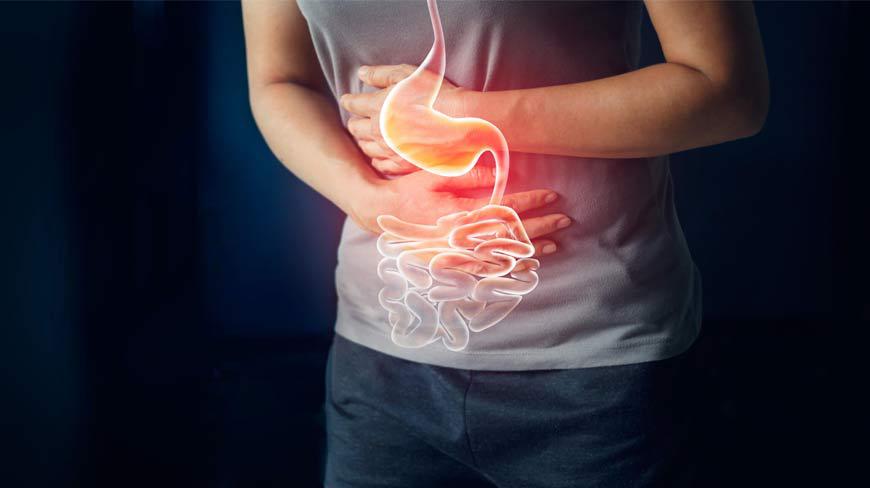Gastrointestinal (GI) discomfort is a common issue that affects millions of people worldwide, manifesting as symptoms like abdominal pain, bloating, nausea, diarrhea, or constipation. These symptoms can stem from a wide range of conditions, from mild, temporary issues like indigestion to chronic disorders such as irritable bowel syndrome (IBS) or inflammatory bowel disease (IBD). According to the National Institute of Diabetes and Digestive and Kidney Diseases (NIDDK), digestive diseases affect approximately 60–70 million Americans annually, leading to significant healthcare costs and reduced quality of life.
What is Gastrointestinal Discomfort?
The gastrointestinal tract, which includes the esophagus, stomach, small intestine, large intestine, and rectum, is responsible for digestion, nutrient absorption, and waste elimination. Discomfort arises when any part of this system is disrupted, leading to symptoms that can range from mild to debilitating. GI discomfort is not a single condition but a symptom of various underlying issues, including dietary triggers, infections, chronic diseases, or stress-related factors.
Appendicitis: When to Seek Emergency Help
Common symptoms of GI discomfort include:
- Abdominal pain or cramping
- Bloating or gas
- Nausea and vomiting
- Diarrhea or constipation
- Heartburn or acid reflux
- Loss of appetite or early satiety
These symptoms can significantly impact daily life, making it essential to identify their causes and pursue effective treatments.
Causes of Gastrointestinal Discomfort
Gastrointestinal discomfort can result from a variety of factors, ranging from lifestyle choices to serious medical conditions. Understanding these causes is crucial for effective management. Key causes include:
- Dietary Triggers: Certain foods and beverages, such as spicy foods, fatty meals, caffeine, or alcohol, can irritate the gastrointestinal tract, leading to symptoms like heartburn or bloating. Lactose intolerance, affecting up to 68% of the global population, is a common cause of discomfort after consuming dairy.
- Infections: Bacterial, viral, or parasitic infections, such as gastroenteritis, can cause acute GI discomfort. For example, Helicobacter pylori infection is a leading cause of gastritis and peptic ulcers, leading to abdominal pain and nausea.
- Functional Gastrointestinal Disorders: Conditions like Irritable bowel syndrome (IBS) affect 10–15% of the global population, causing chronic symptoms like abdominal pain and altered bowel habits without structural abnormalities. “Irritable bowel syndrome is a common disorder that affects the large intestine,” notes the Mayo Clinic.
- Inflammatory Bowel Diseases (IBD): Crohn’s disease and ulcerative colitis are chronic conditions characterized by inflammation of the gastrointestinal tract, leading to severe pain, diarrhea, and weight loss.
- Gastroesophageal Reflux Disease (GERD): Chronic acid reflux, where stomach acid flows back into the esophagus, causes heartburn and discomfort. GERD affects about 20% of U.S. adults.
- Medications and Toxins: Nonsteroidal anti-inflammatory drugs (NSAIDs), antibiotics, or excessive alcohol can irritate the stomach lining, leading to gastritis or ulcers.
- Stress and Psychological Factors: Stress and anxiety can exacerbate GI symptoms, particularly in functional disorders like IBS. The gut-brain axis plays a significant role in these conditions.
- Structural Issues: Conditions like gallstones, appendicitis, or intestinal obstruction can cause severe abdominal pain and require urgent medical attention.
Obesity: Causes, Risks, and Weight Management
Symptoms of Gastrointestinal Discomfort
The symptoms of GI discomfort vary depending on the underlying cause but often include:
- Abdominal Pain: Can range from dull aches to sharp, cramping pain, often localized or diffuse.
- Bloating and Gas: A feeling of fullness or abdominal distension, often due to gas buildup.
- Nausea and Vomiting: Common in infections, GERD, or obstructions.
- Diarrhea or Constipation: Altered bowel habits are hallmarks of IBS, IBD, or infections.
- Heartburn: A burning sensation in the chest, typical of GERD.
- Unexplained Weight Loss: May indicate serious conditions like IBD or cancer.
Persistent or severe symptoms, such as blood in the stool, prolonged vomiting, or unexplained weight loss, warrant immediate medical attention, as they may indicate serious conditions like colorectal cancer or severe IBD.
Diagnosing Gastrointestinal Discomfort
Diagnosing the cause of gastrointestinal discomfort involves a combination of medical history, physical exams, and diagnostic tests. Physicians typically:
- Review Medical History: Assess symptoms, diet, lifestyle, and family history of gastrointestinal disorders.
- Perform Physical Exams: Check for abdominal tenderness, distension, or masses.
- Order Diagnostic Tests:
- Blood Tests: To detect inflammation, infection, or anemia.
- Stool Tests: To identify infections, blood, or malabsorption.
- Endoscopy: A camera inserted into the digestive tract to visualize abnormalities, used for GERD, gastritis, or ulcers.
- Colonoscopy: Examines the large intestine for IBD, polyps, or cancer
- Imaging: X-rays, CT scans, or ultrasounds to detect structural issues like gallstones or obstructions.
- Breath Tests: Used to diagnose lactose intolerance or H. pylori infection.
Accurate diagnosis is critical to tailor treatments to the specific cause of discomfort.
Treatments that Work for Gastrointestinal Discomfort
Effective treatment depends on the underlying cause, ranging from lifestyle changes to medications or surgery. Below are evidence-based treatments for common Gastrointestinal conditions:
1. Lifestyle and Dietary Modifications
- Dietary Adjustments: Avoiding trigger foods (e.g., spicy, fatty, or dairy products) can alleviate symptoms. For IBS, a low-FODMAP diet may reduce IBS symptoms in about 70% of patients.
- Hydration: Drinking adequate water supports digestion and prevents constipation.
- Small, Frequent Meals: Eating smaller portions reduces strain on the digestive system, particularly for GERD or bloating.
- Stress Management: Techniques like mindfulness, yoga, or therapy can reduce stress-related GI symptoms, especially in IBS.
2. Medications
- Antacids and Acid Reducers: Over-the-counter antacids (e.g., Tums) or H2 blockers (e.g., ranitidine) relieve heartburn in GERD. Proton pump inhibitors (PPIs) like omeprazole are used for more severe cases.
- Antibiotics: For H. pylori-related gastritis or ulcers, a combination of antibiotics and PPIs is standard.
- Antispasmodics: Medications like dicyclomine reduce cramping in IBS
- Anti-Diarrheal or Laxatives: Loperamide for diarrhea or polyethylene glycol for constipation can manage bowel symptoms.
- Immunosuppressants or Biologics: For IBD, medications like mesalamine, corticosteroids, or biologics (e.g., infliximab) reduce inflammation.
Zollinger-Ellison Syndrome: Rare Digestive Disorder – What You Need to Know
3. Surgical Interventions
- Cholecystectomy: Removal of the gallbladder for gallstones causing severe pain.
- Bowel Resection: For severe IBD or obstructions, removing damaged sections of the intestine may be necessary as advised by Crohn’s & Colitis Foundation.
- Fundoplication: A procedure to strengthen the lower esophageal sphincter in severe GERD cases.
4. Complementary and Alternative Therapies
- Probiotics: May improve gut health and reduce IBS symptoms by balancing gut bacteria.
- Acupuncture: Some studies suggest it may alleviate IBS or chronic pain, though evidence is mixed.
- Herbal Remedies: Peppermint oil may reduce IBS symptoms, but should be used under medical supervision.
Preventing Gastrointestinal Discomfort
While not all gastrointestinal issues are preventable, the following strategies can reduce risk or symptom severity:
- Healthy Diet: Emphasize fiber-rich foods (fruits, vegetables, whole grains) to support digestion and prevent constipation.
- Limit Trigger Foods: Avoid excessive alcohol, caffeine, or processed foods that irritate the GI tract.
- Regular Exercise: Physical activity promotes healthy digestion and reduces stress.
- Hygiene Practices: Wash hands and cook food thoroughly to prevent infections like gastroenteritis.
- Regular Check-Ups: Routine screenings, like colonoscopies, can detect serious conditions early.
Autoimmune Disorders: Recognizing the Signs, Diagnosis, and Treatment
Living with Gastrointestinal Discomfort: Practical Tips
Managing chronic gastrointestinal discomfort requires a proactive approach to maintain quality of life:
- Track Symptoms: Keep a food and symptom diary to identify triggers and discuss with your doctor.
- Work with a Specialist: Consult a gastroenterologist for personalized treatment plans.
- Stay Informed: Learn about your condition from reputable sources to make informed decisions.
What You Need to Know About Glaucoma and Blindness
Yeast Infections (Candidiasis): Causes, Symptoms, and Treatment
Rheumatoid Arthritis: Causes, Symptoms, Prevention, and Treatment


